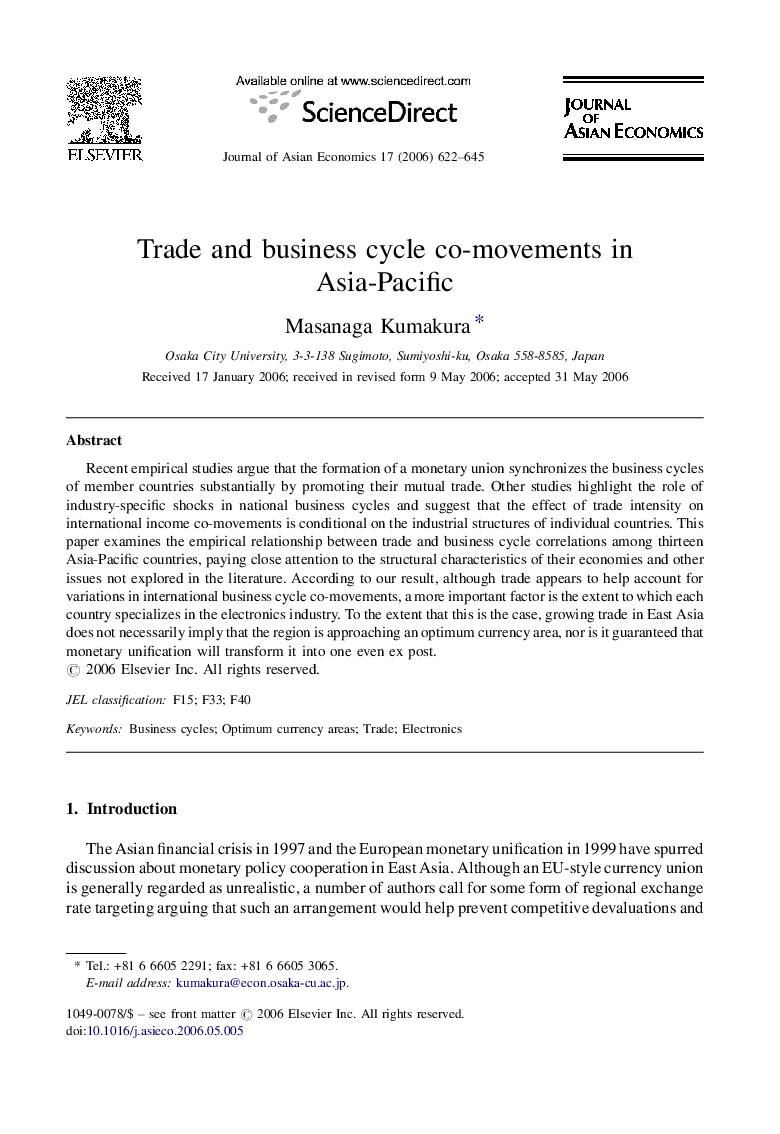| Article ID | Journal | Published Year | Pages | File Type |
|---|---|---|---|---|
| 5087982 | Journal of Asian Economics | 2006 | 24 Pages |
Abstract
Recent empirical studies argue that the formation of a monetary union synchronizes the business cycles of member countries substantially by promoting their mutual trade. Other studies highlight the role of industry-specific shocks in national business cycles and suggest that the effect of trade intensity on international income co-movements is conditional on the industrial structures of individual countries. This paper examines the empirical relationship between trade and business cycle correlations among thirteen Asia-Pacific countries, paying close attention to the structural characteristics of their economies and other issues not explored in the literature. According to our result, although trade appears to help account for variations in international business cycle co-movements, a more important factor is the extent to which each country specializes in the electronics industry. To the extent that this is the case, growing trade in East Asia does not necessarily imply that the region is approaching an optimum currency area, nor is it guaranteed that monetary unification will transform it into one even ex post.
Related Topics
Social Sciences and Humanities
Economics, Econometrics and Finance
Economics and Econometrics
Authors
Masanaga Kumakura,
